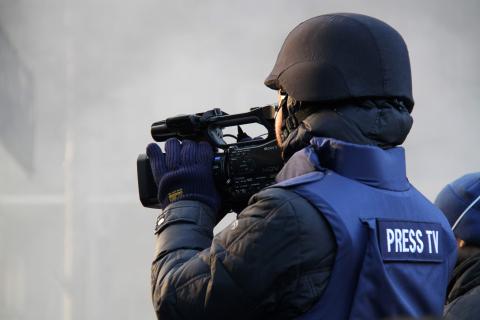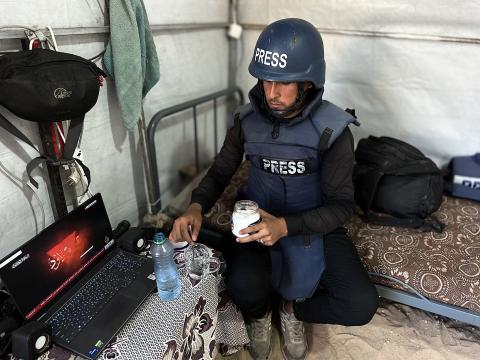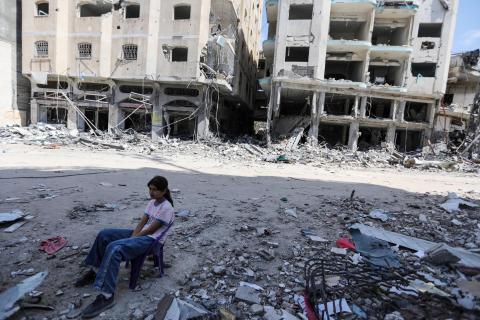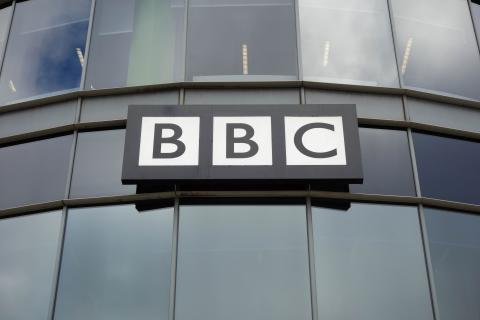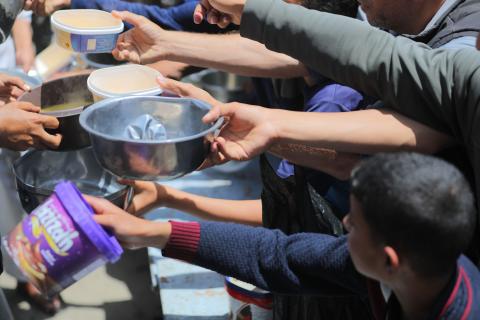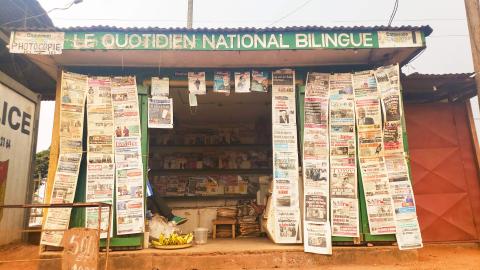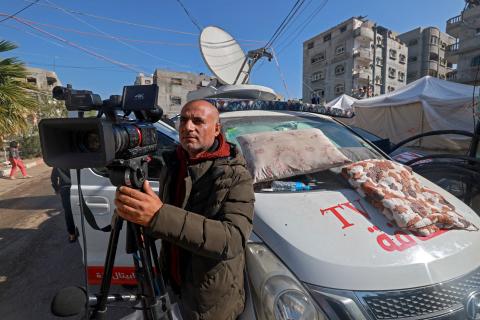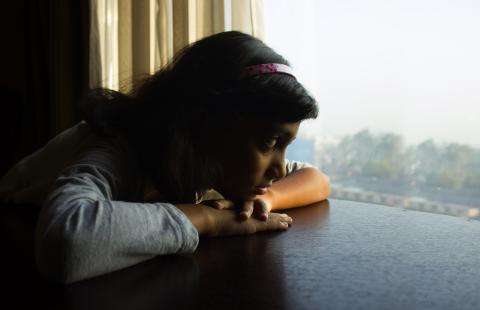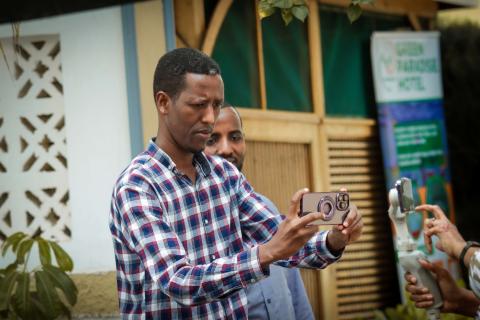Al Jazeera Journalism Review
Monitoring of Journalistic Malpractices in Gaza Coverage
On this page, the editorial team of the Al Jazeera Journalism Review will collect news published by media institutions about the current war on Gaza that involves disinformation, bias, or professional journalistic standards and its code of ethics.

The Battle to Keep Journalists Alive in Gaza
Hungry journalists covering the story of starvation in Gaza, surviving on salt to stay alive, selling their work equipment to secure a “sack of flour” for their children, shedding the “shame” of publicly asking for food, and enduring the harshest media environment just to maintain “continuous coverage”.

Balancing Productivity and Privacy: How Female Journalists Use AI Chatbots
Female journalists in Jordan are harnessing AI chatbots to boost productivity, enhance digital safety, and find emotional support, but their growing reliance also raises critical concerns about privacy, ethics, and the responsible use of emerging technologies in journalism. This article explores how these tools are reshaping their workflows while navigating the challenges of trust and accountability.
From "Death Announcement" to "Eulogy": The Obituary as a Journalistic Genre
Obituaries for influential public figures have become a recognised journalistic genre, handled by seasoned reporters in major media outlets. How did this practice evolve, what defines it professionally, and how ethically acceptable is writing obituaries in advance?

Canadian Mainstream Media’s Orientalist Stance Towards Palestinians
Canadian mainstream media manufactures consent to support Israel through biased language, withholding historical context, and conflating any criticism of the Israeli state with antisemitism. When the Canadian mainstream media covers the question of Palestine, they usually frame it as a religious issue and withhold the historical and socio-political context.

Bias by Omission: How Israeli Occupation Crimes Are Filtered in Western Media
Western media coverage of the war on Gaza does not stop at bias in what it chooses to publish; it practices a deeper form of bias: bias by omission. Testimonies are excluded, massacres are marginalized, and the narrative is reshaped to serve a single version of events. This analysis explores how “gatekeepers” in Western newsrooms play a direct role in silencing the Palestinian voice and entrenching the Israeli narrative.

In the War on Gaza: How Do You Tell a Human Story?
After nine months of genocidal war on Palestine, how can journalists tell human stories? Which stories should they focus on? And does the daily, continuous coverage of the war’s developments lead to a “normalisation of death”?

From Rwanda to Palestine: How Media Becomes a Partner in Genocide
July 4 each year coincides with Liberation Day in Rwanda, which marks the end of the genocidal war against the Tutsi. This article explains the reasons behind the media’s neglect of the genocide and how the press failed to help prevent it. It also offers a critical perspective on how the same practices are being reproduced in coverage of the genocidal war on Palestine.

The BBC Says It’s “Impartial.” But Its Own Staff Say Otherwise
BBC journalists and media professionals accuse the BBC’s leadership — and board member Robbie Gibb in particular — of blocking truthful reporting on Israel/Palestine through censorship, political bias, and a culture of fear that betrays the BBC’s duty to report “without fear or favour.”

How Much AI is Too Much AI for Ethical Journalism
As artificial intelligence transforms newsrooms across South Asia, journalists grapple with the fine line between enhancement and dependency

How to Tell the Stories of Gaza’s Children
Where does compassion end and journalism begin? How can one engage with children ethically, and is it even morally acceptable to conduct interviews with them? Palestinian journalist Reem Al-Qatawy offers a profoundly different approach to human-interest reporting. At the Hope Institute in Gaza, she met children enduring the harrowing aftermath of losing their families. Her experience was marked by intense professional and ethical challenges.

How Is Western Media Framing the Famine Catastrophe in the Gaza Strip?
Can the media subject the issue of famine in Palestine to so-called professional balance even after UN agencies and the International Court of Justice have acknowledged it? Why have many Western media outlets avoided precise legal and ethical terms such as “famine” or “starvation,” opting instead for vague expressions like “food shortage” or “nutrition crisis”? Doesn’t this practice reflect a clear bias in favor of the Israeli narrative and serve to justify the policy of “systematic starvation”?

Do Foreign Journalists Matter in Covering Genocide? A Look into Bosnia, Rwanda, and Gaza
How did foreign journalists cover the killings in both Bosnia-Herzegovina and Rwanda? Did they contribute to conveying the truth and making an impact? Would the entry of foreign journalists into the Gaza Strip change the reality of the ongoing genocide? And would their coverage of the famine and massacres add to the daily coverage of local journalists?
Why is the local press's coverage of wars seen as deficient compared to Western journalism, even though they incur greater losses and casualties?

Newspapers: An Industry Adapting to Survive Through Digital Transformation
As digital transformation reshapes the media landscape, newspapers in Cameroon are navigating unprecedented challenges and opportunities. This evolution compels them to adapt their strategies to engage a new generation of readers amidst fierce online competition, decreasing government subsidies, and a decline in print sales.

How Palestine Is Forcing Journalists to Reexamine Objectivity and Decolonize
This article argues that the Palestinian context exposes the colonial roots of traditional journalism and calls for a decolonial approach that centers marginalized voices, promotes collaborative reporting, and demands structural change within newsrooms to uphold journalistic integrity.

The Mental Toll on India’s Minority-Focused Freelance Journalists
Freelance journalists in India, particularly those reporting on marginalised communities and conflict zones like Kashmir, endure immense emotional and psychological strain, often without any institutional support. What are the hidden costs of reporting on violence, where telling the truth can come at a steep personal price?

The Role of Social Science Tools in Enhancing Journalism
When French sociologist Pierre Bourdieu was asked about the contribution of the suburbs to elections, he replied that decades of colonialism and complex problems cannot be summarised in 10 minutes. The value of social sciences in supporting journalism is demonstrated when they address issues of society, power, and identity for the sake of better journalism.

Digital Dependency: Unpacking Tech Philanthropy’s Grip on Local News in the MENA
AI-driven journalism initiatives in the Middle East, often backed by philanthropic media development projects, are reshaping local newsrooms under the influence of global tech giants. These efforts, while marketed as support, risk deepening power asymmetries, fostering digital dependency, and reactivating colonial patterns of control through algorithmic systems and donor-driven agendas.
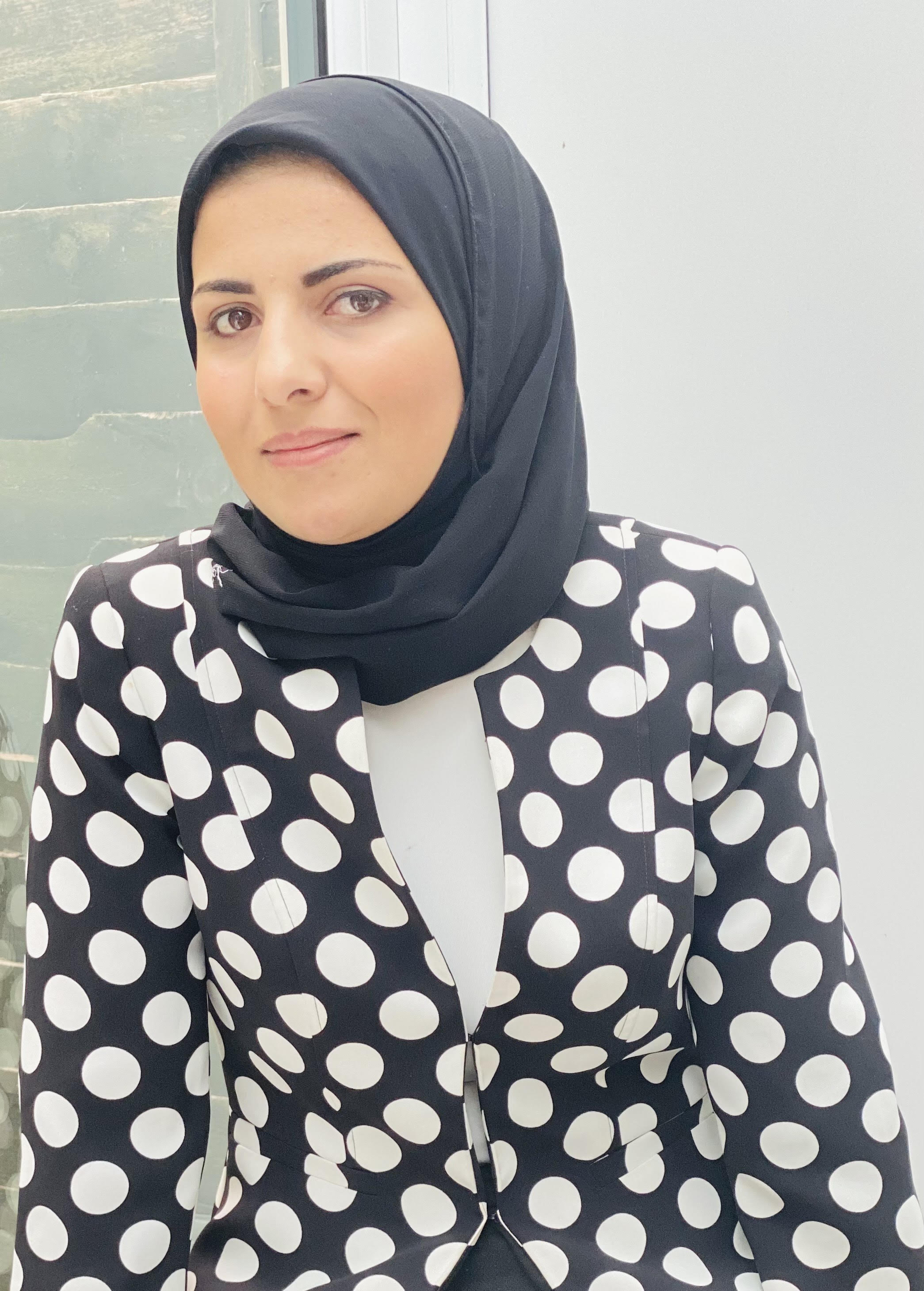
Journalism Colleges in Somalia: A Battle for Survival
Journalism colleges in Somalia are struggling to survive due to outdated curricula, lack of practical training, insufficient funding, and a shortage of qualified educators, leading to declining student enrollment and interest. Despite efforts by institutions like Mogadishu University and Hormuud University to revive journalism education, these challenges persist, threatening the future of journalism in the country.

Philippine Activists Fight Archive Erasure and Revive Dictatorship-Era Memories
In the Philippines, archivists fight to preserve evidence of the country’s bloodied past, in hope that it will provide lessons for the future.

News Fatigue and Avoidance: How Media Overload is Reshaping Audience Engagement
A study conducted on 12,000 American adults revealed that two-thirds feel “exhausted” by the overwhelming volume of news they receive. Why is the public feeling drained by the news? Are audiences actively avoiding it, and at what psychological cost? Most importantly, how can the media rebuild trust and reconnect with its audience?

